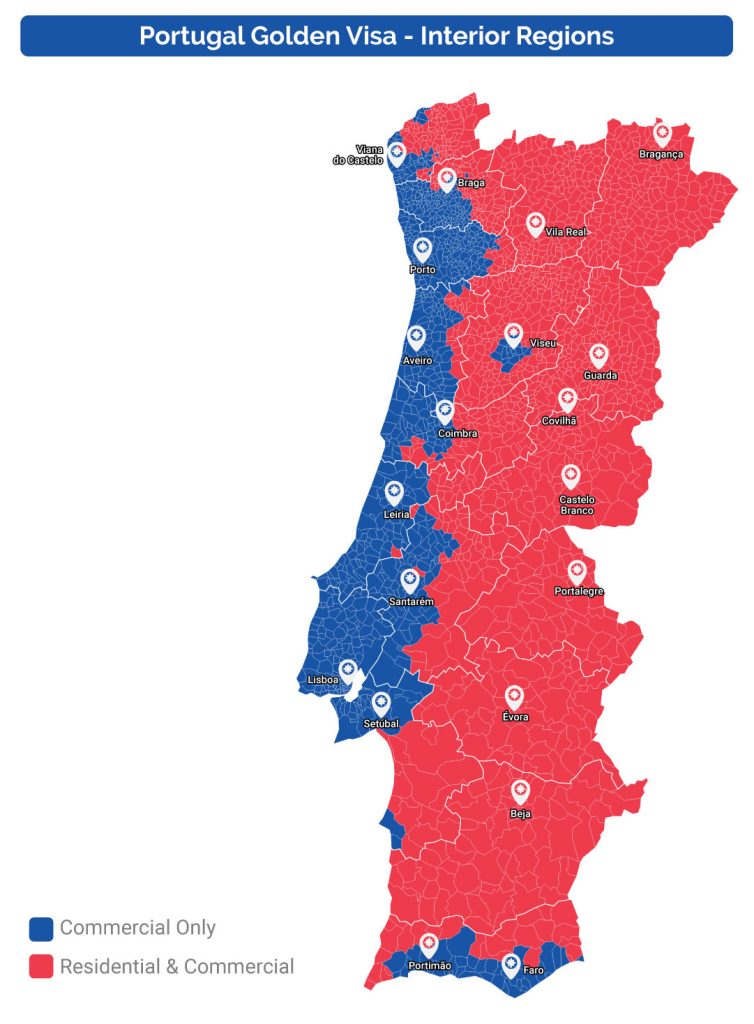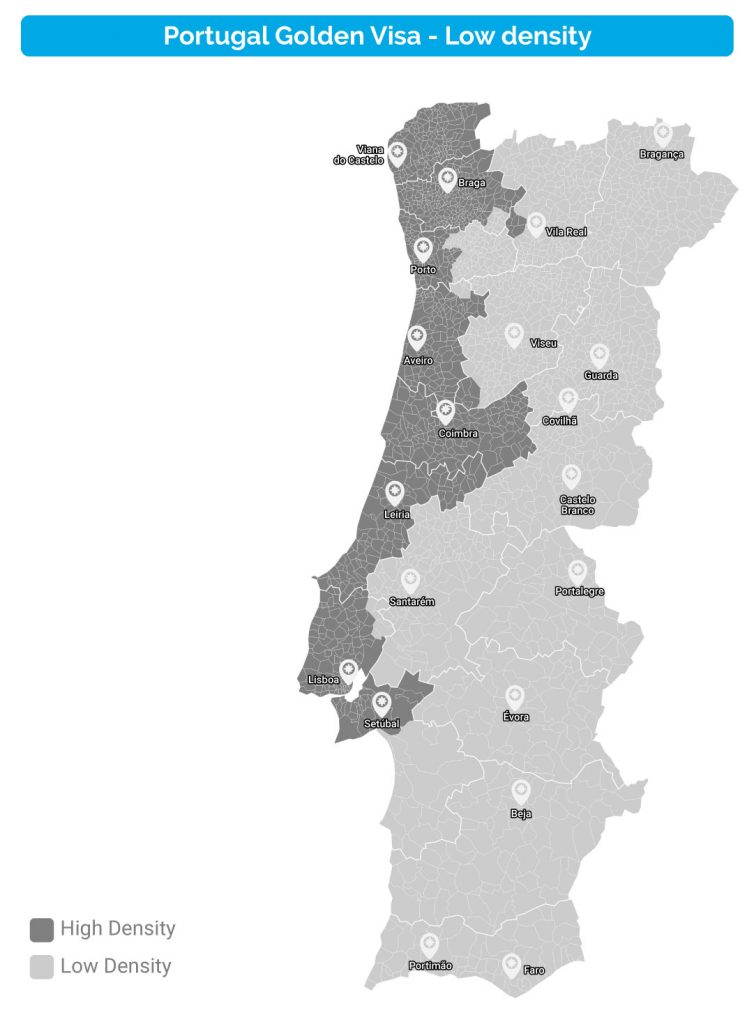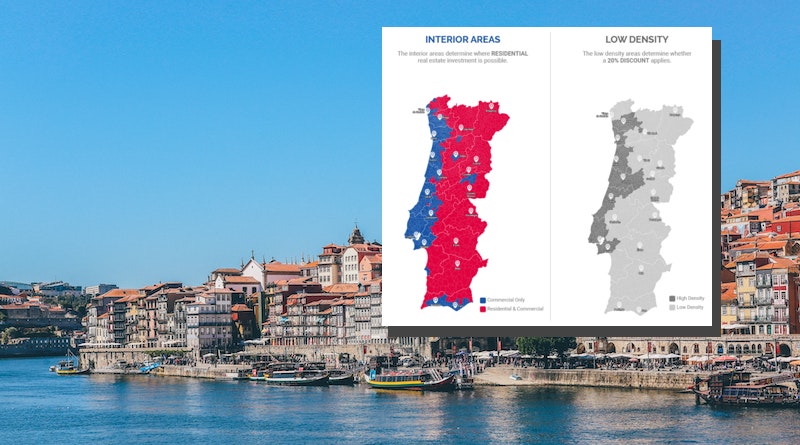A New Year, A Revised Portugal Golden Visa Program: What You Need to Know

Patricia Casaburi – Managing Director at Global Citizen Solutions
Sponsor
After a year of speculation, the Portuguese government has finally released guidelines on the new Portugal Golden Visa changes, due to kick in on 1 January 2022.
To date, Portugal’s five-year residency-by-investment program has attracted more than 10,000 investors from all corners of the globe, seeing over €6 billion in foreign direct investment. Opportunities to invest in property, venture capital funds, business, capital transfer, or research are ripe, with applicants typically acquiring Portuguese residency within a year. Portuguese citizenship can also be attained after five years.
While Golden Visa investments have positively transformed the Portuguese economy, contributions have spurred uneven growth in certain areas of the country, like the Lisbon and Porto property markets. As such, the Portuguese government has implemented new measures to diversify investments to Portugal’s interior regions, and is focusing on key areas like cultural heritage, urban requalification, productivity, and job production.
While aspiring applicants can rest assured that there are still plenty of investment routes to choose from, most investment options will become more expensive in light of recent Portugal Golden Visa changes. More importantly, a new classification system will determine eligible real estate investments for the Golden Visa. Given that over 90% of all golden visa investments are property-related, it becomes interesting to observe what is changing.
From 1 January 2022, the following changes related to property investments will take effect:
- Investors won’t be able to buy residential property or invest in residential rehabilitation projects in popular urban areas like Lisbon, Porto, Setubal, and the Silver Coast.
- Applicants can only buy a residential property in designated interior areas of Portugal. The property investment must be equal to or greater than €500,000, or €350,000 if investing in a rehabilitation project. If the residential real estate investment happens to be located in a ‘low-density’ area of the country, then applicants automatically get a 20% discount on their investment.
- Investors can still purchase commercial real estate anywhere in Portugal, worth at least €500,000 or €350,000 if investing in a commercial rehabilitation project. If the commercial property is located in a designated ‘low-density’ area, then a 20% discount applies.
- Investors can continue to buy both residential and commercial real estate in Portugal’s autonomous islands of Madeira and Azores, worth €500,000 or €350,000 if investing in a rehabilitation project.
In addition, the following investment options will become more pricey:
- The capital transfer investment will increase from €1 million to €1.5 million.
- The investment fund amount will increase from €350,000 to €500,000
- Investment in scientific research will increase from €350,000 to €500,000
- Investment into an existing Portugal-registered business will increase from €350,000 to €500,000
What’s not changing:
- You can still launch a Portuguese company that employs at least ten local full-time employees
- You can still make an arts donation of €250,000
Low-Density vs. Interior Areas Eligible for a Golden Visa Property Investment
There has been recent confusion among experts in defining low-density versus interior areas of Portugal. Interior areas simply mean areas where you can make a residential real estate investment to qualify for the Portugal Golden Visa. Note that there are no location restrictions for commercial real estate. Meaning, investors can continue to buy commercial property in urban hubs like Lisbon or Porto as long as they can prove the property in question is licensed for business-related activities.

In contrast, low-density areas of Portugal determine whether a 20% discount applies to the golden visa investment. In this case, low-density regions are defined as having less than 100 inhabitants per square km or a per capita GDP of less than 75% of the national average.
Note that an area can be interior and high-density. In this case, you can purchase a residential property, but no 20% discount applies.

So, where does that leave aspiring Golden Visa applicants? As mentioned, the Portugal Golden Visa changes roll out on 1 January 2022. Technically, applicants have until 31 December 2021 to submit their application and enjoy the current Golden Visa Program before it changes for good.
With just three weeks left before the Golden Visa changes, industry experts need to start normalizing these changes, considering they are, after all, just around the corner. For more information about the Portugal Golden Visa program and all that it has to offer, check out our Ultimate Guide to the Portugal Golden Visa program.
Patricia Casaburi has an LLB from the University of Law, in London and her specialties include legal lead liaison in commercial law and immigration. With an added bonus of a bachelor degree in media studies and journalism, she built expert sales and operations teams, with knowledge of the best communication practices.
As a Brazilian national, with Italian and Lebanese grandparents Patricia knew from an early age what it meant to be global. Patricia worked in London in account management for an international group before founding Global Citizen Solutions.
Patricia speaks Portuguese and English and has a good understanding of Spanish and French.


